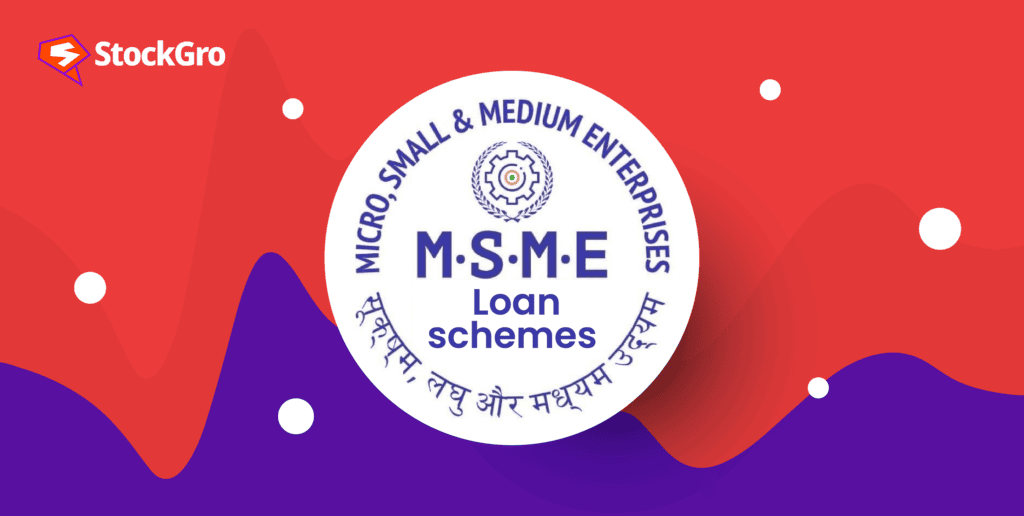
India’s small businesses greatly impact the country’s gross domestic product (GDP), employment rate, and industrial production. However, these companies encounter many obstacles, especially monetary ones, making it hard for them to grow and stay in business. Unmet financial needs rank high among the most prevalent problems.
Government loan schemes for small businesses are useful in situations like these. The Indian government has instituted several programmes intending to assist small companies financially so that they can grow and prosper.
This article will explore these government loan programmes in detail, explaining what they are, who can apply, and how small companies benefit. Keep reading to find out how these plans could help your small business overcome any financial difficulties it’s experiencing.
The need for government loan schemes
Small enterprises, integral to India’s economic landscape, often grapple with financial challenges, impeding their growth. High interest rates, stringent collateral requirements, and restricted access to credit are some of the obstacles they face.
A government loan scheme could potentially change the game in this situation. If these schemes were offered to small businesses in financial distress, they would be like a lifeline. Compared to conventional banks, they provide more lenient loan terms, and lower interest rates, and can even extend credit to companies that would otherwise have trouble obtaining it.
Also read: How can financial education boost India’s economic potential?
Overview of government loan schemes
The Indian government has introduced various small business loan government schemes to support the growth and development of small businesses. These schemes are designed to meet the unique requirements of small businesses while giving them the financial support they require.
Each scheme is designed to cater to the unique requirements of India’s small business community, with its own set of benefits and eligibility criteria.
Detailed analysis of key government loan schemes
MUDRA loans
Purpose of the scheme
Inaugurated in 2015, the Pradhan Mantri MUDRA Yojana (PMMY) introduced the Micro-Units Development and Refinance Agency (MUDRA) loans. These loans, catering to micro and small enterprises (excluding agricultural businesses), provide financial support up to ₹10,00,000.
Eligibility criteria
The ideal candidate is an Indian national, between the ages of 18 and 65, intending to launch a non-agricultural enterprise that will not necessitate a loan exceeding ₹10 lakhs.
Loan amount, interest rate, and tenure
Loan amounts range up to ₹50,000 for Shishu, ₹50,000 to ₹5,00,000 for Kishore, and ₹5,00,000 to ₹10,00,000 for Tarun. Interest rates start at 7.30% p.a., and the repayment period can be anything from one year to seven years.
Application process
Filling out the application, choosing the loan amount, and sending the necessary paperwork to a lender registered under the Mudra scheme are all part of the application process.
Credit Guarantee Scheme for Micro & Small Enterprises (CGTMSE)
Purpose of the scheme
The Indian government established the CGTMSE to help the micro and small business sector get loans without requiring collateral. The small and medium-sized enterprise (SME) sector will be better served by the scheme’s efforts to streamline the credit delivery system.
Eligibility criteria
Micro and small businesses in the service and manufacturing industries, both current and prospective, are welcome to apply to the scheme. But some industries aren’t going to be a part of it, like schools, support groups, vocational schools, and farms.
Loan amount, interest rate, and tenure
Credits up to ₹2 crores are guaranteed under the scheme. This guarantee is valid for a full five years.
Application process
Business plan preparation, bank selection, and report and application form submission are all parts of the application process.
Stand-up India scheme
Purpose of the scheme
With the launch of the Stand-Up India Scheme, banks in the country are making it easier for members of Scheduled Castes (SC), Scheduled Tribes (ST), and women to get greenfield business loans ranging from ₹10 lakh to ₹1 crore.
Eligibility criteria
The ideal candidate is a woman business owner or an Indian citizen who falls into the SC/ST category and is at least 18 years old.
Loan amount, interest rate, and tenure
From ₹10 lakh to ₹1 crore, the loan amount is available. To calculate the interest rate, add the base rate (MCLR) plus 3% plus the tenor premium, but no more than the lowest applicable rate of the bank for that category. There is a 7-year maximum repayment period and an 18-month maximum moratorium.
Application process
The application process can be accessed through the official Stand-Up India portal. To begin, enter all of the necessary details about the business location. Then, choose the category (SC, ST, Woman) and indicate whether the stake is 51% or higher.
Also read: Closing the divide: Strategies to overcome gender wealth disparity
Coir Udyami Yojana
Purpose of the scheme
Establishing coir units with a project cost of up to ₹10 lakhs is the goal of the Coir Udyami Yojana, a subsidy scheme that is linked to credit. By implementing cutting-edge manufacturing and processing methods, the scheme aims to bring the coir industry up to date.
Eligibility criteria
Any Indian citizen over the age of 18 is eligible to apply. Assistance is available under this scheme regardless of income level. Projects involving the production of coir fibre, yarn, products, etc., are eligible for the scheme.
Loan amount, interest rate, and tenure
There is a cap of ₹10 lakhs on the project budget. Interest and the base rate are both set at the same level. No more than seven years should pass before repayment is due.
Application process
Those interested must go to the designated website, sign up, input all relevant information, upload supporting documents, and then submit.
Credit Link Capital Subsidy Scheme for Technology Upgradation
Purpose of the scheme
The scheme aims to assist Micro and Small Enterprises (MSEs) in improving their technology by providing a 15% initial capital subsidy on institutional financing up to ₹1 crore.
Eligibility criteria
To qualify, an MSE must have a current Udyam Registration and use institutional financing to purchase new plant and machinery that meets the scheme’s approval criteria.
Loan amount, interest rate, and tenure
You can invest up to ₹1 crore in approved machinery and get a 15% upfront capital subsidy under this scheme. The lending institution would set the loan’s terms, including interest rates and repayment schedules.
Application process
To get a term loan, qualified MSEs must apply online through Primary Lending Institutions (PLIs).
Also read: Financial literacy advocacy: A beacon of hope for underserved communities
Bottomline
When it comes to small businesses, government loan schemes are more than simply a source of funding; they can be powerful forces that help them expand and thrive. Small businesses in India can improve their financial situation, encourage innovation, and greatly impact the economy if they learn about and use these schemes.
The success of your small business could be just a loan application away. Happy financing!

